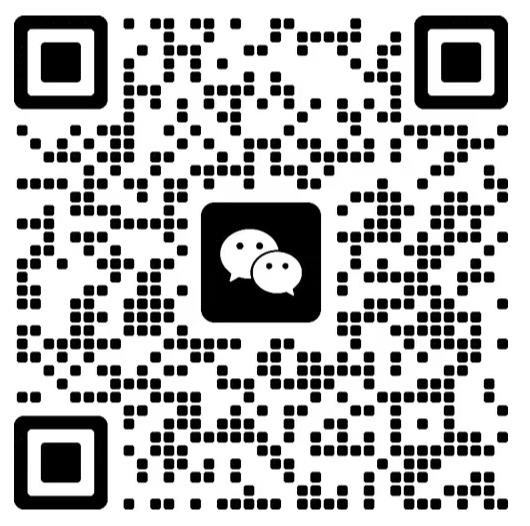天龙八部用英语怎么说,大威天龙英文配音
天龙八部用英语怎么说,大威天龙英文配音,老铁们想知道有关这个问题的分析和解答吗,相信你通过以下的文章内容就会有更深入的了解,那么接下来就跟着我们的小编一起看看吧。
Introduction:

"天龙八部" is a famous Chinese novel written by Jin Yong, also known as Louis Cha. It has gained immense popularity not only in China but also among international readers. As the demand for foreign-language adaptations of popular Chinese works increases, the English dubbing of "天龙八部" has become a significant endeavor. In this article, we will explore how "天龙八部" is translated into English and discuss the challenges and efforts involved in producing the impactful English dubbing called "大威天龙."
Translation Challenges and Techniques:
Adapting Chinese literature, especially a renowned work like "天龙八部," into English requires careful consideration and linguistic expertise. The complexity of the original story, cultural references, and linguistic nuances pose significant challenges. However, through a combination of translation techniques and skilled voice acting, the English version, "大威天龙," successfully captures the essence of the original.
First, let us delve into the translation process. To ensure an accurate representation of the original work, translators employ various techniques such as literal translation, cultural adaptation, and creative interpretation. Literal translation helps maintain the integrity of the story by providing a faithful rendering of the original text. However, cultural adaptation becomes essential to bridge the gap between the Chinese and English cultures. This involves explaining cultural references, idioms, and historical contexts while maintaining the narrative flow.
Furthermore, creative interpretation plays a pivotal role in bringing the characters and their emotions to life in the English dubbing. Skillful translators strike a balance between adhering to the original text and creating an enjoyable reading experience for English-speaking audiences. It involves careful consideration of language choices, sentence structure, and dialogue flow.
Voice Acting and Dubbing Techniques:
In a successful English dubbing, voice actors play a crucial role in conveying the personalities and emotions of the characters. Just like in the original Chinese version, the English dubbing of "天龙八部" aims to create an immersive and captivating experience for the viewers. The voice actors undergo rigorous training to accurately portray the characters' voices, intonations, and expressions.
Moreover, the dubbing process requires syncing the voiceover with the lip movements of the characters on-screen. This meticulous task ensures a seamless viewing experience, where the audience feels the connection between the character's voice and their actions. By employing advanced dubbing technology, the English dubbed version, "大威天龙," achieves synchronization, lending an authentic feel to the viewing experience.
Conclusion:
The English dubbing of "天龙八部" as "大威天龙" showcases the skill and dedication required to bring a renowned Chinese novel to a broader international audience. Through meticulous translation, cultural adaptation, and skilled voice acting, the English version successfully captures the essence of the original work. As Chinese literature continues to gain global recognition, the art of English dubbing plays a crucial role in bridging the gap between cultures and fostering a greater appreciation for diverse literary traditions.
天龙八部用英语怎么说

Title: The English Translation of "天龙八部"
Introduction:
In the era of globalization, the cultural exchange between East and West has become more prevalent. As a classic Chinese martial arts fiction masterpiece, "天龙八部" holds significant value, not only within China but also internationally. This article aims to explore how the title of this famous work can be translated into English, providing insights into various translation approaches and the challenges they entail.
I. Understanding the Title
The title "天龙八部" comprises three Chinese characters, each carrying its own meaning. "天" translates to "heaven" or "sky," representing the supernatural or divine elements often found in the story. "龙" means "dragon," symbolizing power, wisdom, and mythical creatures. Lastly, "八部" refers to "eight parts," suggesting the involvement of various factions or groups within the narrative.
II. Translation Approaches
1. Literal Translation: "Heavenly Dragon Eight Parts"
This approach provides a direct translation, maintaining the individual meaning of each character. However, the resulting title lacks fluency and elegance, potentially sounding awkward to English-speaking readers.
2. Semantic Translation: "The Divine Dragon and Its Eight Sects"
This approach aims to capture the essence of the original title by using semantic equivalents. "Divine" substitutes for "heavenly," conveying the supernatural element, while "sect" replaces "parts," emphasizing the diverse factions in the story.
3. Transliteration: "Tian Long Ba Bu"
Transliteration preserves the phonetics of the original title but does not directly convey its meaning. While this approach may appeal to fans familiar with the original work, it fails to capture the attention of potential new readers.
III. Comparative Analysis
To evaluate the translation approaches, a comparative analysis can shed light on their strengths and weaknesses.
Literal Translation emphasizes faithfulness to the original text but lacks artistic appeal, hindering its ability to attract a wide readership. Semantic Translation strikes a good balance between conveying the core meaning and maintaining readability. However, it may oversimplify the intricacies present in the original work. Transliteration aims to preserve the cultural authenticity, but its effectiveness is limited to an existing fan base and does not facilitate broader international recognition.
IV. Conclusion
In conclusion, the English translation of "天龙八部" demands careful consideration of various factors, such as cultural nuances, readability, and artistic appeal. While different translation approaches provide distinct advantages and disadvantages, a well-executed semantic translation captures the essence of the original work while maintaining readability and attracting a broader audience. It is crucial for translators to possess a deep understanding of both Chinese and English language and culture to convey the true spirit of "天龙八部" to an international readership.
大威天龙BGM叫什么名字

大威天龙BGM称为“天龙八部”,是一款由大威网络科技有限公司开发的多人在线角色扮演游戏。这款游戏以金庸先生的武侠小说《天龙八部》为基础,展现了一个庞大的江湖世界和丰富的武侠文化。BGM(背景音乐)扮演着重要的角色,为玩家营造出真实、沉浸式的游戏体验。
天龙八部的BGM以古风音乐为主题,将古代中国的音乐元素与现代电子音乐相结合,营造出一种独特的氛围。这种独特的风格使得每一首BGM都具有独特的特点,令人耳目一新。从游戏开始的第一曲到各种剧情场景的配乐,每一首BGM都经过精心制作,旨在将玩家带入游戏的情境中。
在天龙八部的BGM中,有一首名为《天龙八部主题曲》的曲目,它是整个游戏的代表作之一。这首曲目采用了古琴和二胡的演奏,具有古典美感与现代韵味的完美结合。曲调清亮悠扬,给人一种宁静与祥和的感觉,同时又能表现出江湖风云变幻的激烈氛围。这首曲目成为了许多玩家的心目中的经典之作。
除了《天龙八部主题曲》,在游戏中还有许多其他的BGM,每一首都通过音乐元素将游戏的故事情节和角色形象刻画得淋漓尽致。《龙儿走四方》是一首描述游戏中女主角龙儿的曲目,它采用了轻快的音乐节奏和欢快的旋律,表达了龙儿天真活泼、勇敢无畏的性格特点。再《大漠孤烟直》是一首用悠扬的胡琴和著名女歌手演唱的曲目,刻画了游戏中大漠孤烟这个角色的多愁善感和孤独寂寞。
通过对比不同曲目的风格与氛围,我们可以感受到天龙八部BGM的多样性和丰富性。它们创造出了一个富有想象力和浪漫色彩的武侠世界,在游戏中成为了玩家与角色之间的纽带。无论是战斗场景中的激烈音乐,还是剧情发展时的悲壮音乐,天龙八部的BGM都能够为玩家带来不同的情感体验和游戏乐趣。
大威天龙BGM的名字是《天龙八部主题曲》,它以古风音乐为主题,通过独特的音乐元素和精心制作的曲目,为玩家营造了一个真实、沉浸式的游戏体验。无论是在游戏中还是在现实中,这些BGM都成为了人们对于游戏的独特记忆和喜爱。让我们一起走进天龙八部的世界,感受那些美妙的音乐旋律吧!
天龙八部用英语怎么说,大威天龙英文配音的问题分享结束啦,以上的文章解决了您的问题吗?欢迎您下次再来哦!
免责声明:以上整理自互联网,与本站无关。其原创性以及文中陈述文字和内容未经本站证实,对本文以及其中全部或者部分内容、文字的真实性、完整性、及时性本站不作任何保证或承诺,请读者仅作参考,并请自行核实相关内容。(我们重在分享,尊重原创,如有侵权请联系在线客服在24小时内删除)
为您的创意找到最好的声音
平台累计配音,超40,050,000 分钟
-
品质保证15年专注网络配音行业 500+国内外专业配音员
-
多种配音中文多场景配音 提供小语种配音
-
公司化运作提供正规发票 签订服务合同
-
双重备案工信部公安双重备案 取得文化经营许可证
-
7*14全天候服务公司实现轮流值班 9:00-21:00都有客服
推荐样音
更多收到您的极速试音需求
关注【客服微信】
听最新案例,新客礼包等你拿!
提交成功
试音顾问将在工作日半小时内联系您,请准备试音文稿或参考音频加速匹配
你也可以注册,可自助下单挑选主播,在线接单配音。(7 X 24小时主播接单)











